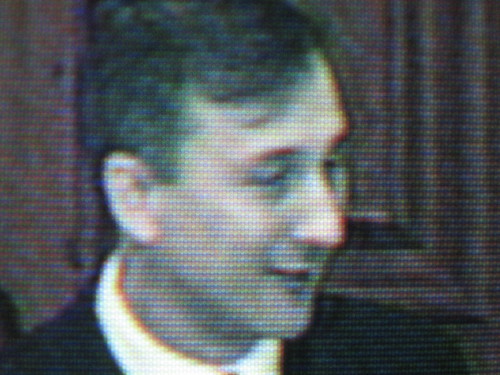Goodfellas and bad women
Andrew Anthony find The Real Goodfellas to be all mouth and no bite, while Suburban Shootout makes a lively start
Sunday April 30, 2006
The Observer
The Real Goodfella C4
Britain's Yobs C4
Michael Carroll: King of the Chavs C4
CSI: Crime Scene Investigation C5
Suburban Shootout
Philip and his Seven Wives BBC4
Henry Hill suffered from undiagnosed attention deficit disorder and learning difficulties as a child. In The Real Goodfella one of his fawning character witnesses suggested that only 'a rare person would have risen above those things'. Hill was not that rare person, so instead he joined the mafia and became an extortionist, an armed robber, a drug dealer and an accomplice to murder.
You know how it is with hyperactive kids: first they won't sit down at dinner, and next they're hijacking and burying people somewhere in the swamps of New Jersey. At the return from the commercial break, you half-expected to hear the words: 'Sponsored by Ritalin'.
Hill is the hood-turned-informer on whom Martin Scorsese based his mafia epic Goodfellas. A long-term alcoholic who has also served his time with cocaine and heroin, Hill never actually said anything that made any sense. If you listened very carefully it was possible to pick out the occasional non-expletive in Hill's conversation - words like 'the' and 'and' and 'it' - though their presence in a sentence often seemed gratuitous, needlessly breaking up the kind of infelicitous sequences of profanity of which Gordon Ramsay could only dream.
There were a few statements about how violence horrified him. But these were cursory and self-serving and so it was left to his various biographers, including Scorsese, to fill in the gaping holes. But no one displayed much appetite for that job, preferring instead to endorse the myth they had so profitably helped to create. Amid the hype and excited tales of Hill's psychopathic former associates, it was possible to glean that Hill was a minor sleazebag who used to hang around with major sleazebags. Even living under the witness protection scheme in Nebraska failed to inhibit Hill's criminal activities. From this we were meant to gather that he was a loveable, if incorrigible, rogue rather than, say, an opportunistic rat.
Many of the same cast of mafia observers in The Real Goodfella also turned up in The Godfather and the Mob and The Real Sopranos, the two other films in what Channel 4 billed as its Mob Week. They all shared the same narrator, the same theme of the interplay between the real-life mafia and Hollywood's fictional version, and were produced by the same production company.
The subject boasts enough history to warrant a documentary series but these programmes taken together lacked sufficient material to add up to one decent documentary, much less three. Like Hill, they fell victim to ADD, jumping from one event to another idea without ever establishing the basics of the story they were trying to tell. One moment, for example, we were told the mafia doesn't deal with hard drugs because it's too risky, the next that it's their main business.
It was symptomatic of the general inconsistency and indifference to detail that in some shots Hill spoke with a full set of gleaming white teeth, while in others they were as missing as Jimmy Hoffa. Had they been removed between takes by some vengeful mafia enforcer with a pair of domestic pliers? We never found out. But the toothless Hill summed up the production: all mouth and no bite.
Violence was very much the topic of the week on Channel Four. Britain's Yobs aimed to get to grips with the growing problem of teenage anti-social behaviour and street assaults. To this end the camera crew drove up to gangs of hoodies and asked them what they were doing out at night. For some reason, none of them said that they were waiting to engage in random acts of violence on innocent passersby.
Another candidate for Ritalin prescription, the film rushed around the country looking for action or a thesis or something that might lend it a sense of purpose. But it never stayed anywhere long enough to find out what it was that it wanted to find out.
Teenage street crime is a complex issue inextricably bound up with the unwillingness of adults to feel, never mind take, civic responsibility. No documentary could expect to unearth the golden solution to this gathering crisis. The very least it ought to do, however, is question received wisdoms. Long before a group of adolescent boys were interviewed around a pool table telling the camera that if it wasn't for the youth club they'd be on the streets committing crime, the filmmakers made it clear that they preferred to reach for the nearest cliché.
Sunday, April 30, 2006
WILL BERNARD LORD DOWNLOAD THIS ADHD MOVIE????
Subscribe to:
Post Comments (Atom)

No comments:
Post a Comment